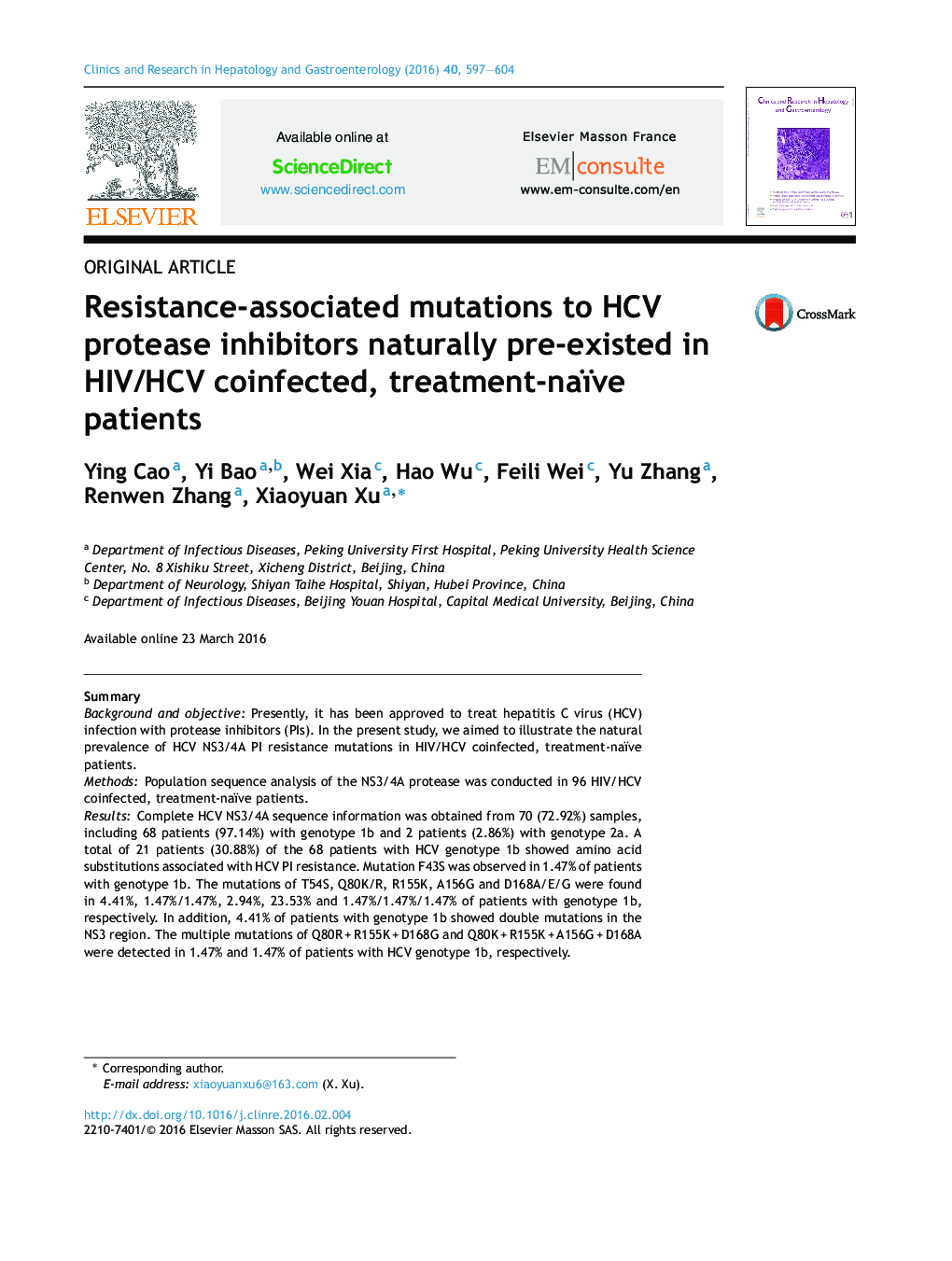| Article ID | Journal | Published Year | Pages | File Type |
|---|---|---|---|---|
| 5657767 | Clinics and Research in Hepatology and Gastroenterology | 2016 | 8 Pages |
SummaryBackground and objectivePresently, it has been approved to treat hepatitis C virus (HCV) infection with protease inhibitors (PIs). In the present study, we aimed to illustrate the natural prevalence of HCV NS3/4A PI resistance mutations in HIV/HCV coinfected, treatment-naïve patients.MethodsPopulation sequence analysis of the NS3/4A protease was conducted in 96 HIV/HCV coinfected, treatment-naïve patients.ResultsComplete HCV NS3/4A sequence information was obtained from 70 (72.92%) samples, including 68 patients (97.14%) with genotype 1b and 2 patients (2.86%) with genotype 2a. A total of 21 patients (30.88%) of the 68 patients with HCV genotype 1b showed amino acid substitutions associated with HCV PI resistance. Mutation F43S was observed in 1.47% of patients with genotype 1b. The mutations of T54S, Q80K/R, R155K, A156G and D168A/E/G were found in 4.41%, 1.47%/1.47%, 2.94%, 23.53% and 1.47%/1.47%/1.47% of patients with genotype 1b, respectively. In addition, 4.41% of patients with genotype 1b showed double mutations in the NS3 region. The multiple mutations of Q80RÂ +Â R155KÂ +Â D168G and Q80KÂ +Â R155KÂ +Â A156GÂ +Â D168A were detected in 1.47% and 1.47% of patients with HCV genotype 1b, respectively.ConclusionsThe most predominant HCV genotype was 1b in patients with HIV/HCV coinfection. Naturally occurring mutations resistant to HCV PIs (simeprevir, vaniprevir, boceprevir, telaprevir, asunaprevir and paritaprevir) pre-existed in patients with HIV/HCV genotype 1b coinfection. The effects of baseline PI resistance on treatment outcome should be further analyzed.
